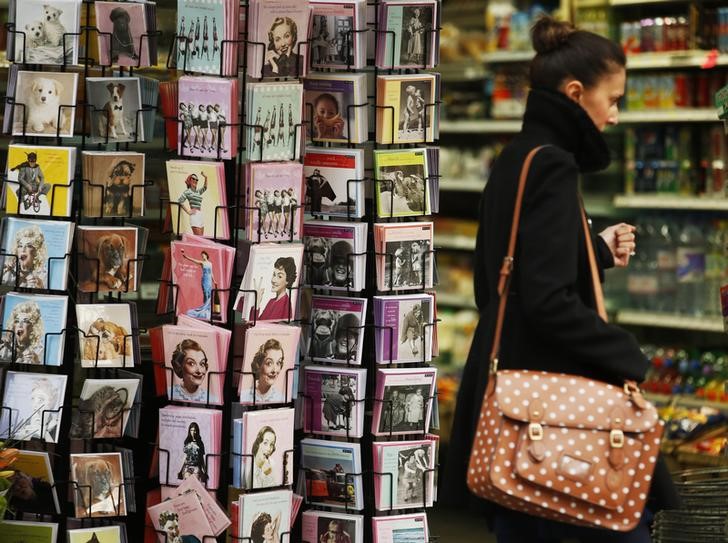LONDON (Reuters) - British inflation turned positive again in May after dipping below zero in April for the first time in 55 years, suggesting the country's flirtation with deflation was only brief.
The Office for National Statistics said consumer prices rose 0.1 percent in the 12 months to May, recovering from a fall of 0.1 percent in April.
The May figure was in line with the median forecasts in a Reuters poll of economists.
In monthly terms, inflation rose 0.2 percent, the ONS said.
Bank of England Governor Mark Carney has previously said inflation is likely to pick up as last year's plunge in global oil prices works itself out of the numbers, and that Britain was not heading into a damaging period of deflation.
Indeed, the BoE expects near-zero inflation to help the British economy by boosting the spending power of households.
The wages of workers in Britain have picked up in recent months. Figures due on Wednesday are expected to show basic earnings, excluding bonuses, rose 2.5 percent in the three months to April.
The recent rise of sterling against a basket of currencies may limit the pace of price rises in coming months.
The ONS said on Tuesday that upward pressure on prices in May came from a bounce-back in air fares which dragged down inflation in April on the different timing of the Easter holidays in 2015 and 2014.
Fuel prices rose 1.9 percent in May from April, reflecting a recovery in global oil prices.
Food prices also rose in monthly terms, up 0.1 percent from April for their first month-on-month rise since December.
An underlying measure of inflation, which strips out increases in energy, food, alcohol and tobacco, rose by a yearly 0.9 percent in May, picking up slightly from April.
Data also released by the ONS on Tuesday showed that factory gate prices fell by 1.6 percent in yearly terms in May, the slowest fall since December of 2014 and in line with economists' predictions.
Growth in house prices showed its biggest slowdown in 10 years in April, the ONS said, reflecting uncertainty about May's national election and tax changes in Scotland which caused buyers to bring forward purchases earlier in the year.
House prices rose 5.5 percent in April, slowing from 9.6 percent in March, the lowest rate of growth since December 2013.
Other gauges of house prices have suggested a pick-up in the market in the period after the election which was won by Prime Minister David Cameron's Conservative Party.
The opposition Labour Party had proposed a new tax on expensive properties which hit the market in London in particular. The ONS said London house prices rose by 4.3 percent in the 12 months to April, down from 11.2 percent in March.
